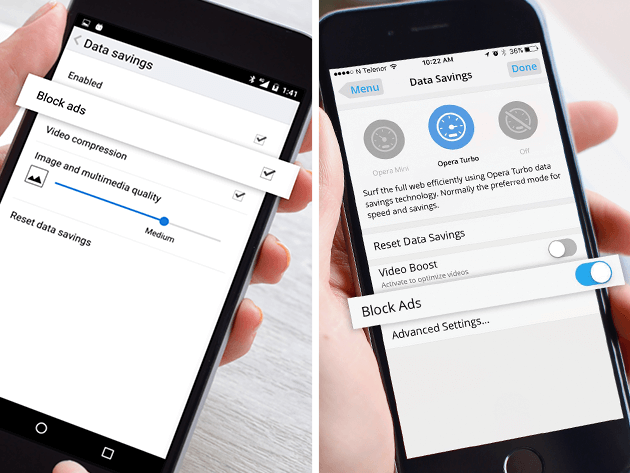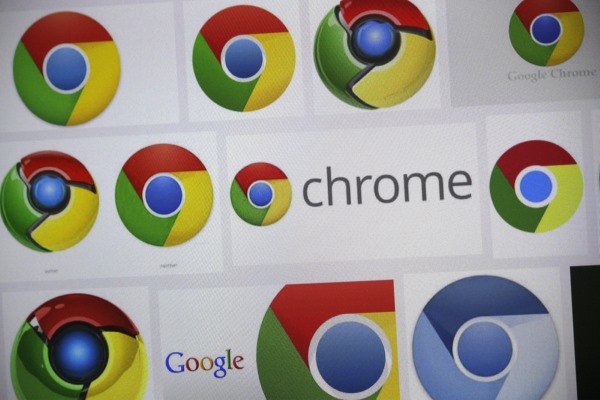
Privacy alert: Maxthon web browser sends private data about users to China
In the world of web browsers, there are four or five big names to choose from but no end of smaller alternatives. One such browser is Maxthon, and security researchers have just discovered that this Chinese-produced browser is transmitting a wealth of data about users back to China.
Researchers at Fidelis Cybersecurity and Exatel found that Maxthon frequently sends zip files to Beijing over HTTP and this contains a terrifying amount of data about users' browsing habits. The ueipdata.zip file incudes, among other things, details of the sites visited by users, the applications they have installed, and what searches have been performed.

Microsoft Edge is the best browser for Netflix -- the only that offers 1080p on the desktop
Internet Explorer has been much-maligned over the years, and Microsoft Edge sees the Redmond company trying to shake off the shackles of the past. Its latest marketing push finds Microsoft claiming that Edge is the best desktop web browser for Netflix viewing.
The reason? In addition to claims about greater battery efficiency, Microsoft's killer blow is that Edge is the only of the main desktop browsers to support 1080p viewing. It might seem like a surprising and audacious claim, but the test bears it out. Microsoft Edge has a serious unique selling point.

Inker is a promising vector graphics editor for Chrome
Vector graphics editors are often bulky desktop applications, aimed very much at design experts, but Inker is very different. The package is a simple Chrome app, easy enough for almost anyone to use, and ideal for creating quick vector designs on a tablet which you can then reuse elsewhere.
The drawing tools cover the basics only, with a freehand pen, rectangles, ellipses, and text.

Mozilla is working on a StumbleUpon-like feature
Mozilla has announced the creation of a new content recommendation system, which hopes will help people find better and more relevant content, easier.
The new product is called Context Graph, and the company’s VP of Products, Nick Nguyen, describes it as a "better forward button".

Google adds a native Cast option to Chrome on the desktop
If you've been using a browser extension to add a casting option to Chrome, you could think about uninstalling it. Google is currently rolling out an update to the desktop version of its web browser.
The feature is making its way to Chrome 51 and can be accessed by right clicking either an open tab or the browser's hamburger menu. Should you ditch the extension, though? It really depends on your needs...

Facebook launches Share and Save extensions for Chrome, redesigns Social Plugin buttons
Facebook is all about sharing and consuming, and today the social network launches two new extensions for the Chrome browser that make it easy to do both. The Share to Facebook and Save to Facebook extensions do very much what you would expect, encouraging not only sharing, but also the use of Facebook as a bookmarking tool for articles you want to read later.
As well as these two extensions, Facebook is also rolling out redesigned Social Plugin buttons. The Like button that you see adorning so many websites is getting a modern makeover, losing the iconic Facebook 'f' logo, and gaining an emoji-lover-friendly thumbs up icon instead.

Chrome flaw makes it possible to copy DRM video streams such as Netflix
Security researchers from Ben-Gurion University Cyber Security Research Center (CSRC) have unearthed a vulnerability in Google Chrome that can be exploited to make copies of DRM-protected video streams. The problem affects all Chromium-based browsers, and makes it possible to circumvent Widevine encryption technology Google uses to secure streams.
Widevine has been used in Chrome for a while, after Google acquired it back in 2010. It has been used to prevent piracy of premium YouTube channels, and is also used to protect Amazon Prime and Netflix streams. Google was informed about the problem back in May, but is yet to issue a patch.

Opera says Microsoft's claims about Edge battery life are wrong -- but all's not as it seems
The other day, Microsoft made some bold claims about the power consumption of Edge. The company claimed that its latest web browser is the most battery-friendly when compared to Chrome, Opera and Firefox. Having been beaten into third place behind Chrome, but ahead of Firefox, Opera has hit back.
The company says that its own tests show -- surprise, surprise -- that it is Opera which is the most efficient battery sipper. Opera says that its own battery saving feature boosts battery life by up to 50 percent when compared to Chrome. The company criticizes Microsoft for failing to reveal its methodology, accusing it of a lack of transparency. But Opera is guilty of being disingenuous, as it fails to compare like with like.

Google Chrome is a Windows 10 battery vampire, and Microsoft Edge is the garlic
Windows 10 is a great operating system, offering a solid user interface and advanced security. The default browser, however, is not so great. Don't get me wrong, Microsoft Edge has a lot of potential, but Chrome is arguably the superior browser for now.
Google's browser is not perfect on Windows 10, apparently, as according to Microsoft, it is a battery vampire. In other words, Chrome -- as well as Firefox and Opera -- will drain your battery faster than the default browser. Using Microsoft Edge is like garlic to these vampires, as it can help you reclaim precious battery life.

Opera now lets you block ads on Android, iOS and Windows 10 Mobile
Opera Software made a bold move earlier this year when it introduced a native ad-blocker in its desktop Opera browser. While controversial, this feature is not enabled by default though promises to offer some major benefits, like a 40 percent boost in performance compared to an extension like AdBlock Plus.
However, folks are not only saying "No" to advertisements on their PCs but also on their smartphones and tablets. In fact, mobile ad-blocking usage has seen a 90 percent rise year-over-year, with more than 400 million devices said to run an ad-blocker. The latest versions of Opera Mini for iOS and Windows 10 Mobile and Opera for Android now cater to that growing audience too, as they too feature a built-in ad-blocker.

Buffer overflow vulnerability in PDFium PDF reader affects Google Chrome
The name PDFium might not be immediately familiar, but if you're a Chrome user there's a high chance you're using it to view PDFs. The PDF viewer is built into Google's browser, and a vulnerability has been discovered in the jpeg2000 library which could allow for malicious code to be executed.
Unearthed by Aleksandar Nikolic from Cisco Talos, the heap buffer overflow vulnerability could be exploited by simply getting a user to open a PDF document with an embedded jpeg2000 image. The National Vulnerability Database entry warns that the security flaw affects versions of "Chrome before 51.0.2704.63 [and] allows remote attackers to cause a denial of service or possibly have unspecified other impact via a crafted PDF document".

Opera 38 unveils battery saver feature for laptops, promises reduced power consumption
Just one month on from the previous stable release, Opera Software has released Opera 38 FINAL. The latest release of this desktop browser for Windows, Mac and Linux has one major headline of note: new battery and power saver features for laptops.
The new build also refines the app’s ad-blocking tool by allowing users to import their own block lists, plus makes several minor Speed Dial improvements.

Bing now gives malware and phishing warnings
Microsoft has changed the way it displays malware warnings in its search engine Bing to help users distinguish between the various forms of attacks that can appear in its searches.
The company has decided to replace its generic warning for websites that could be potentially dangerous for users, and instead offer separate warnings for sites that are known to contain malware and phishing sites.
Firefox 47 widens HTML5 video support to include DRM-protected streams
Mozilla has released Firefox 47 FINAL for Windows, Mac and Linux. Version 47 adds support for Google’s Widevine CDM, enabling compliant sites including Amazon Video to stream DRM-protected video natively using HTML5 rather than via a third-party video plugin.
Elsewhere the new build drops support for add-ons that use the Firefox User Extension Library, plus implements a tweak that allows pages in Reader Mode to be read aloud to the user.

Newsprompt displays breaking news on Chrome’s new tab page
Newsprompt is a free Chrome extension which finds, sorts and displays 50+ of the latest news stories on your new tab page. The add-on scans 1,000+ top websites covering broad and niche categories, uses smart algorithms to remove any duplicates, and presents you with the results: a picture, headline, source and date per story.
Just skimming through the recent results will get you up-to-date in seconds. Click anything interesting and the source article opens in new tab.
